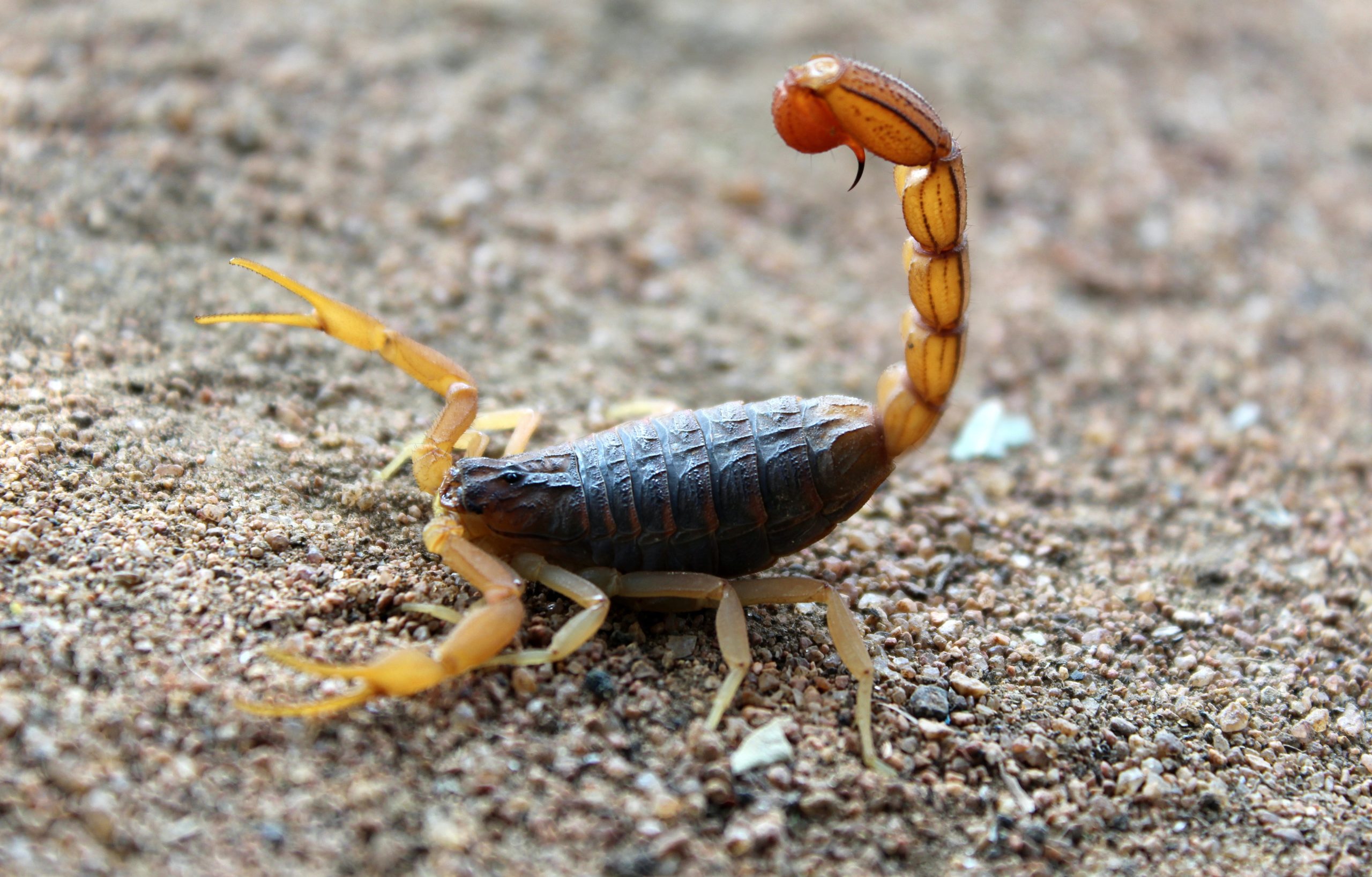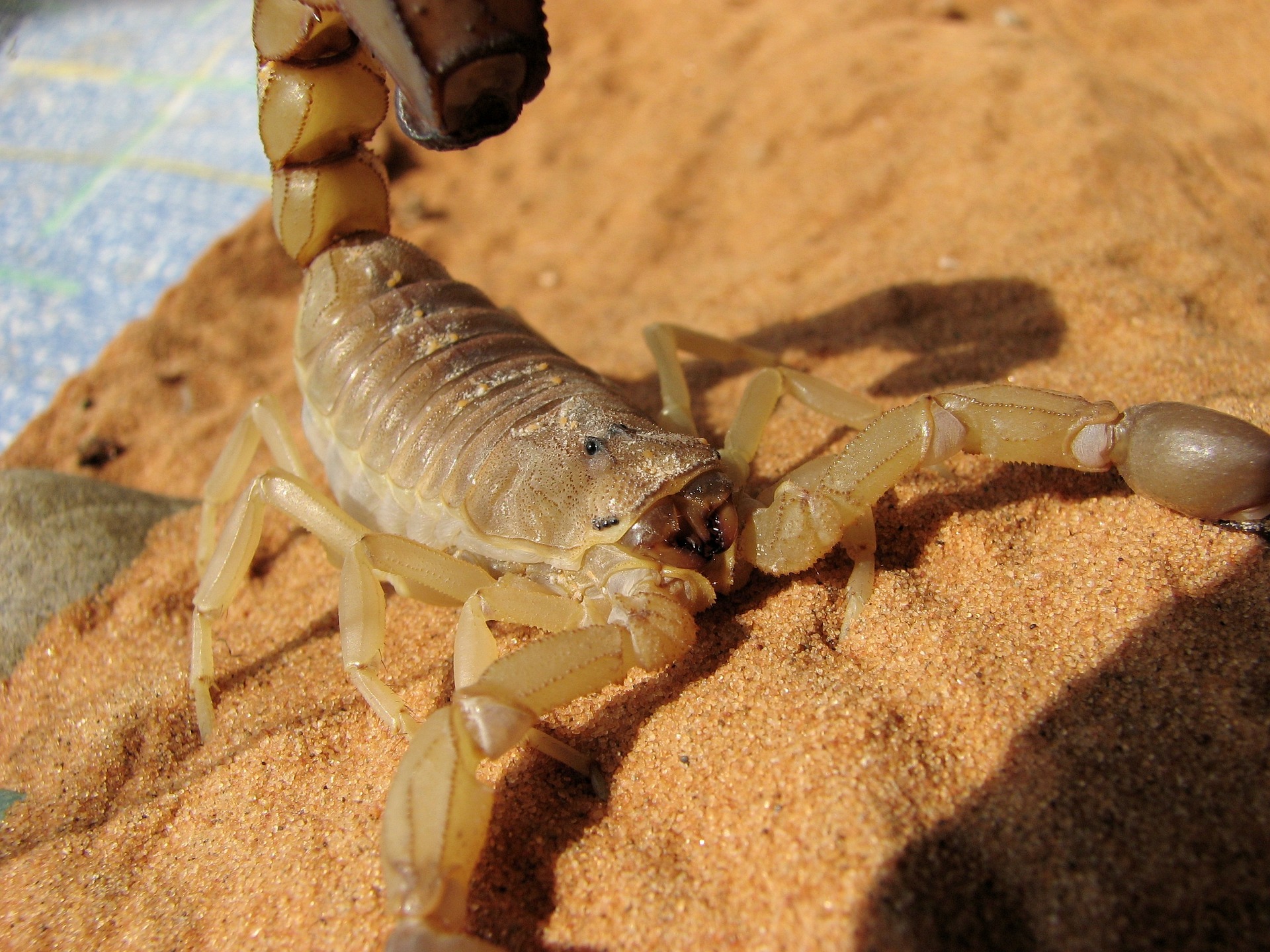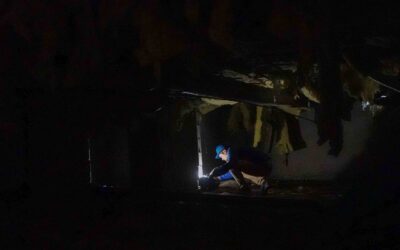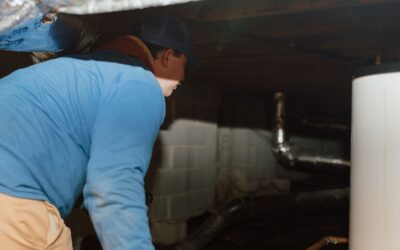
How to prevent scorpion infestations and injuries
The Striped Bark Scorpion is yellowish brown with dark brown bands and a brown or black stinger on the end of its curved tail. A sting delivered by the striped bark scorpion is not highly toxic to humans, but it can be painful and can cause serious allergic reactions especially among elderly and very young people.
Seal off all cracks and openings
Striped bark scorpions are small and can squeeze through tiny cracks and openings. Periodically check your home for places that might need to be sealed with a filler such as caulk or weather stripping. Door sweeps are easy to install and go a long way toward blocking a scorpion’s entry to your home–or even the entry of a different pest which provides a food source for a scorpion.
Shake out your bedding, clothes, and shoes
If you suspect a scorpion infestation in your home, be very careful when getting dressed. Scorpions like to hide in dark spaces and tend to seek security in drawers and attics. Thoroughly shake out all clothing and shoes before putting them on. This is especially true when the seasons change and you bring out clothing and footwear that has been stored in an attic or garage for several months. Remember to check inside pockets, too, and don’t forget your bedding. First thing when you wake up, make your bed. Rumpled bedding, especially if it drapes to the floor, provides a very attractive safe haven for scorpions, who are adept at climbing. Tucking in your sheets and pulling your bedspread up over your pillow helps you keep your bed cozy and safe.

Wear shoes when walking around
Because the Striped Bark Scorpion only grows to a little over two inches long at its adult size and is typically fairly light-colored, it can be easy to overlook one when taking a step, especially if it is on the ground in a shadowy room. Closed toe house shoes offer more protection than shower sandals or open-toe slide-style house slippers.
Reduce moisture in and around your home
Scorpions are attracted to human living spaces because of the easy access to moisture that these areas often offer. To make your home and property less inviting to scorpions, take steps to reduce the sources of water that are available. Be careful not to leave damp towels on the floor in your bathroom, and repair faucets if needed to prevent continuous drips (this goes for bathrooms, kitchens, and outdoor plumbing.) After showering, run the exhaust fan in your bathroom or at least crack a (screened!) window to allow the area to dry properly. Check pipes regularly to be sure there are no hidden leaks drawing scorpions to your crawlspace or under-sink cabinets.
West Termite, Pest & Lawn is your trusted pest control service, ready to help you deal with any scorpion sightings or infestations, safely and effectively. Our trained expert pest control specialists are standing by to deliver top notch service. Call us today!
More posts from West Termite, Pest & Lawn
How Heating Systems Can Spread Pests Indoors
Heating systems are essential for keeping homes comfortable during the colder months, but they can also unintentionally contribute to indoor pest problems. In Arkansas, winter pests indoors such as rodents, spiders, and ants may already be seeking warmth, and heating...
Why Crawl Spaces Are Vulnerable to Winter Pests
Crawl spaces are often overlooked areas of a home, yet they are some of the most vulnerable spaces when it comes to winter pests. In Arkansas, cold weather drives rodents, insects, and other pests to seek warmth and shelter, and crawl spaces provide the perfect...
Planning Your New Year Pest Prevention
The start of a new year is the perfect time to think about protecting your home from pests. Even in the colder months, pests like rodents, spiders, and occasional insects can remain active indoors, and untreated vulnerabilities can lead to costly repairs or...



